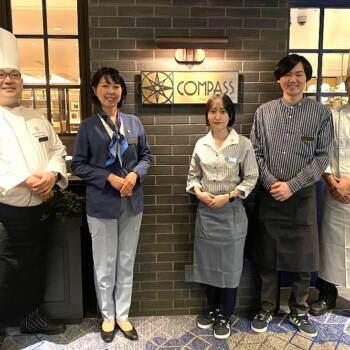![Sustainable Micro-tourism: A one-day tour of sustainability initiatives in Yokohama [Event Report]](https://circular.yokohama/wp-content/uploads/2025/08/sustainable-microtourism-main.jpeg)
Sustainable Micro-tourism: A one-day tour of sustainability initiatives in Yokohama [Event Report]
- On 2025/9/24
Circular Yokohama promotes circular lifestyles in Yokohama and participates as one of the operating organizations of the Yokohama SDGs Design Center, a cross-sectoral platform that connects diverse stakeholders to solve local issues.
On February 8, 2025, as part of this initiative, Circular Yokohama organized the program “Sustainable Micro-tourism: A one-day tour of sustainability initiatives in Yokohama City.”
The tour welcomed nine participants from inside and outside Yokohama and visited four sites. It achieved a 100% satisfaction rate, with many requesting future editions. This article reports on the day’s activities.
Event overview
- Date: Saturday, February 8, 2025, 10:00–17:00
- Visited sites: Ishii Zouen Landscape Co., Ltd., Ohkawa Printing Co., Ltd. , Yokohama SDGs Design Center, Harch Inc.
- Participants: 9
- Organizer: Yokohama SDGs Design Center
- Co-organizer: Circular Yokohama (Harch)
About Y-SDGs certification
Y-SDGs certification is a system established by the City of Yokohama to recognize companies, organizations, NPOs, and civic groups that are actively contributing to the achievement of the SDGs.
The system is operated by the Yokohama SDGs Design Center and aims to encourage businesses to transition to sustainable management and operations, expand customer and business networks, and support investors and financial institutions in making investment decisions, including ESG investment.
For more details about this certification system, please see the official page of the Yokohama SDGs Design Center (in Japanese).
Sharing happiness through greenery: Ishii Landscape
This one-day tour of sustainability initiatives was designed to provide participants with insights for sustainability management and business development by learning from the practices of companies certified under the Y-SDGs accreditation.
The group gathered at JR Ōfuna Station. The first destination was Ishii Landscape Co., Ltd. (hereafter “Ishii Landscape”), which has obtained both the highest “Supreme” level of Y-SDGs certification and B Corp certification, an international accreditation awarded to companies that meet the highest standards of social and environmental performance.
The Y-SDGs certification has three levels: Standard, Superior, and Supreme. The Supreme level is awarded to companies that achieve excellent performance in more than 80% of the evaluation criteria. Only about 10% of certified companies obtain this level, indicating that these businesses significantly contribute to the achievement of the SDGs.
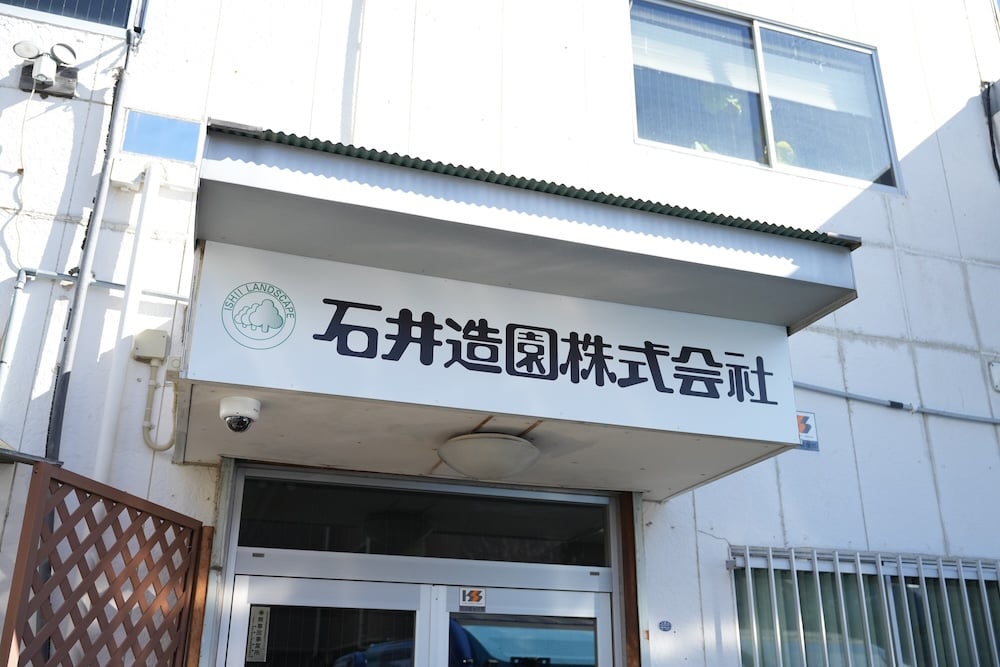
Ishii Landscape aspires to become a company that shares happiness through its activities, placing emphasis on CSR (Corporate Sustainable Responsibility) initiatives rooted in community contribution. CEO Naoki Ishii introduced the “Green Fund,” a system where the company collects the last three digits of the cost of each construction project throughout the year, doubles the amount, and donates it to local organizations engaged in community activities.
The company also organizes a community marche market twice a year (in May and November) under the concept “Share our customers’ exceptional items with the local community,” featuring handmade one-of-a-kind goods and locally grown vegetables.
These initiatives show how the company not only runs its business but also returns happiness to the community.
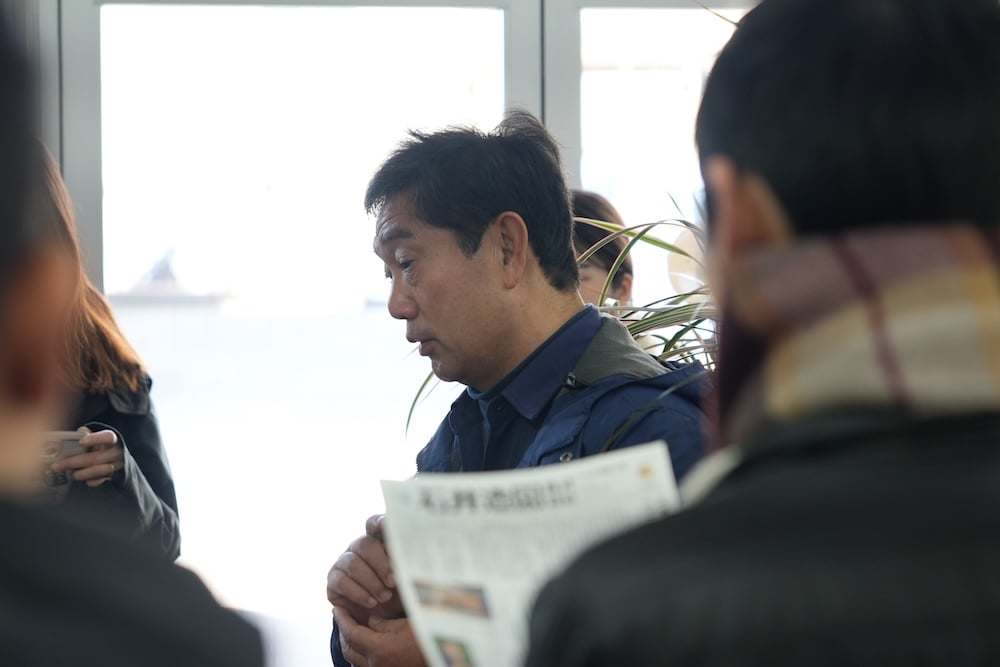
Naoki Ishii, CEO, Ishii Landscape Co., Ltd.
After visiting the headquarters, participants moved on to UCHISOTO CAFE, which Ishii Landscape opened in 2024 as a space embodying its philosophy of “sharing happiness through greenery.”
During the walk to the café, Ishii introduced the history and characteristics of the neighborhood in Sakae Ward, his hometown. The knowledge he shared as the head of a landscaping company founded in 1965 was very well received by participants, with some saying, “This was the most enjoyable part.”
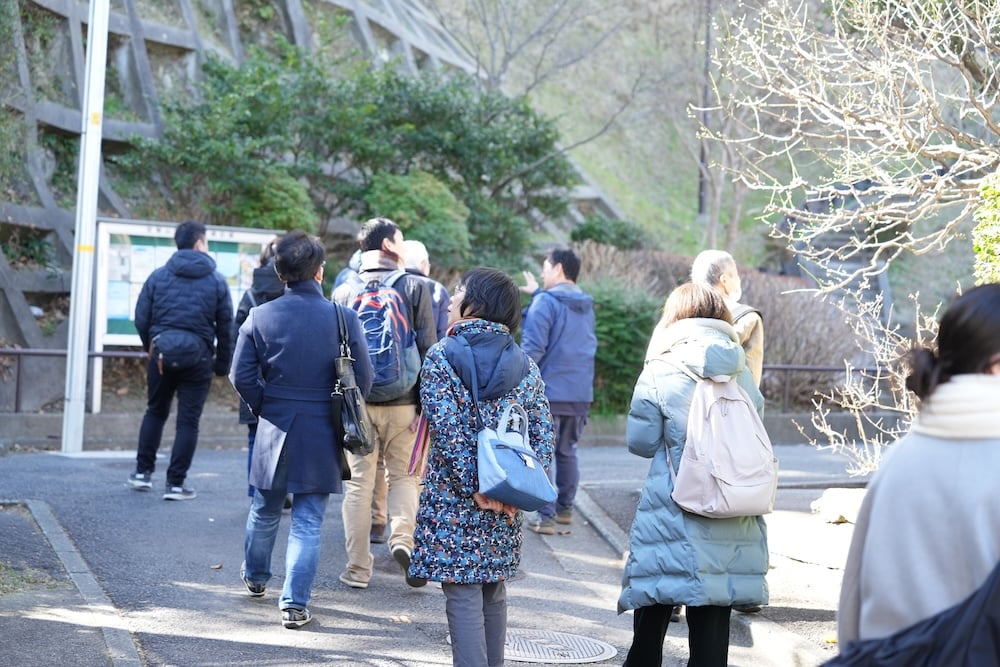
a scene from the tour
UCHISOTO CAFE is based on the concept of connecting spaces, times, and cultures. It offers an open atmosphere with greenery and gardens where anyone can bring their interests and talents, fostering a community.
Participants shared feedback such as, “I was deeply impressed by the wisdom and flexibility of Ishii and his staff. Working at a company of a similar scale, I found ideas that could be applied to my own business.”
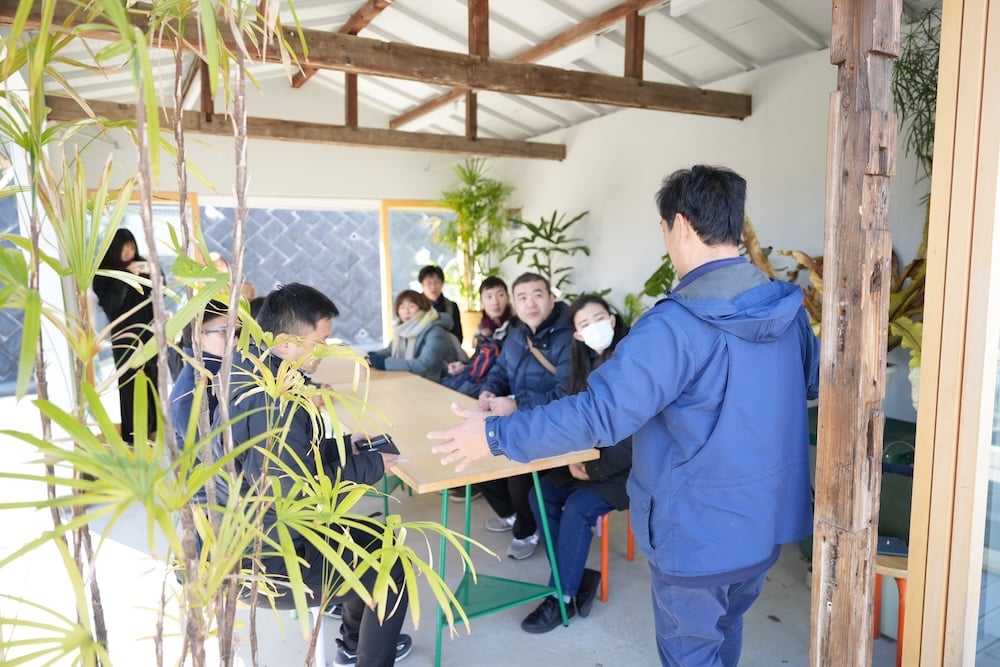
Presentation at UCHISOTO CAFE
Environmentally friendly printing: Ohkawa Printing
The second destination was Ohkawa Printing Co., Ltd. (hereafter “Ohkawa Printing”), which operates the social-issue-oriented studio “with GREEN PRINTING” near Yokohama Station. Ohkawa Printing is one of Yokohama’s leading printing companies and has also obtained the highest “Supreme” level of Y-SDGs certification.
The company prints using 100% renewable energy and has been certified by the global initiative SBT (Science Based Targets). Through printing, Ohkawa Printing actively promotes environmental considerations in collaboration with stakeholders.
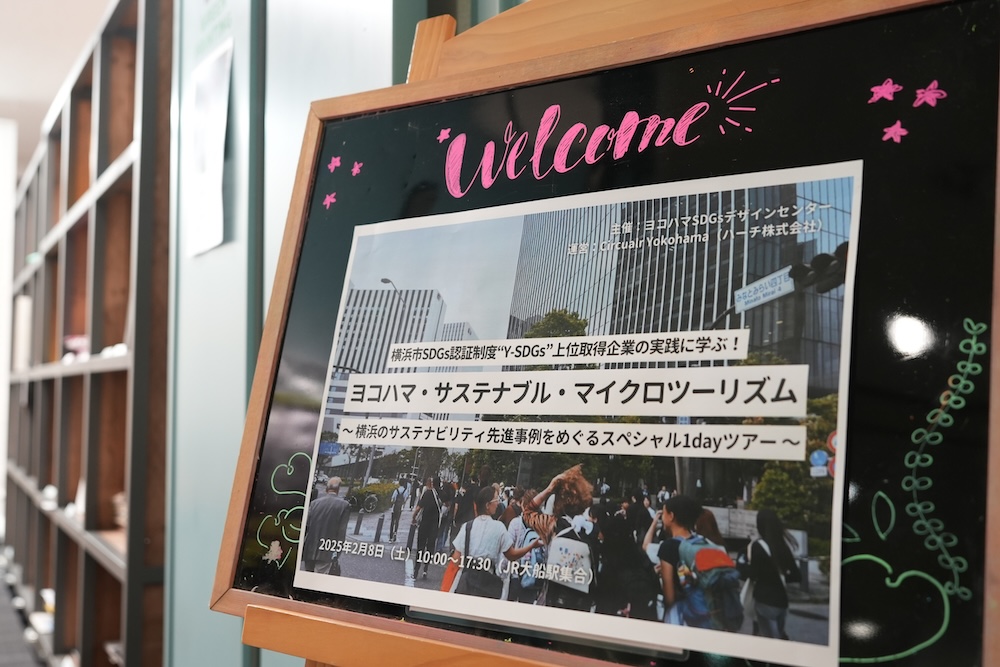
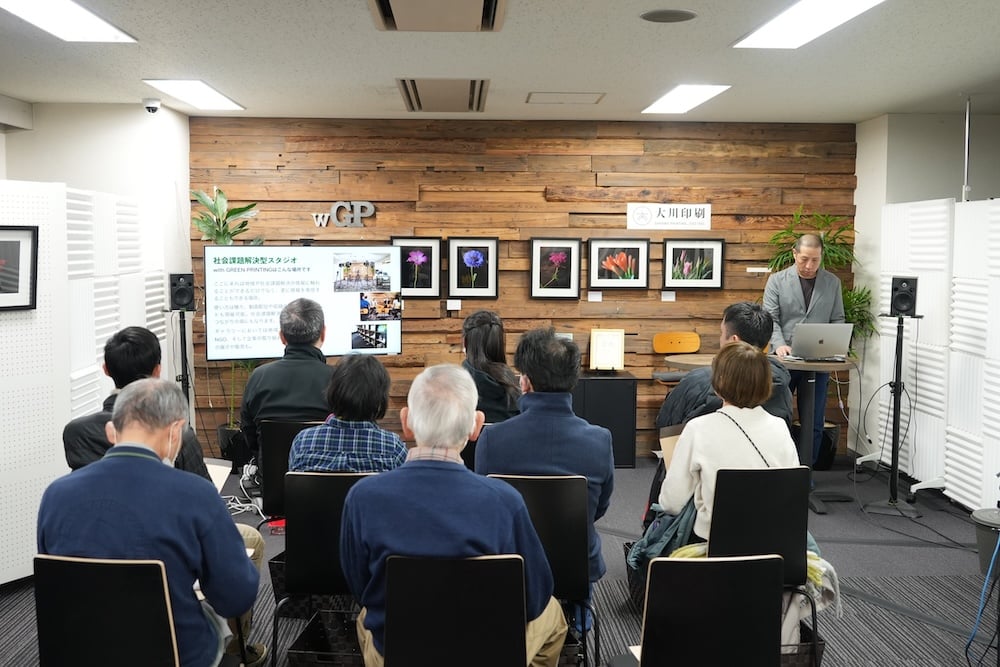
Introduction of Ohkawa Printing business activities
During the visit, CEO Tetsuro Ohkawa and Toshiyuki Imai from the Planning & Design Department explained the principles they prioritize in daily operations and the approaches they take to integrate sustainability throughout the company. Their insights offered practical SDGs actions relevant across industries.
Ohkawa Printing uses FSC® certified paper and vegetable-based inks that contain no petroleum solvents. These inks not only reduce environmental impact but also lessen the characteristic odor of printing inks, improving the work environment for employees.
The studio “with GREEN PRINTING” also functions as a hub for information-sharing and problem-solving related to social issues. In addition to video distribution and recording, it can be rented out for events and other activities. The interior features walls made from reclaimed timber from old houses and reused carpets, reflecting a strong commitment to environmental sustainability.
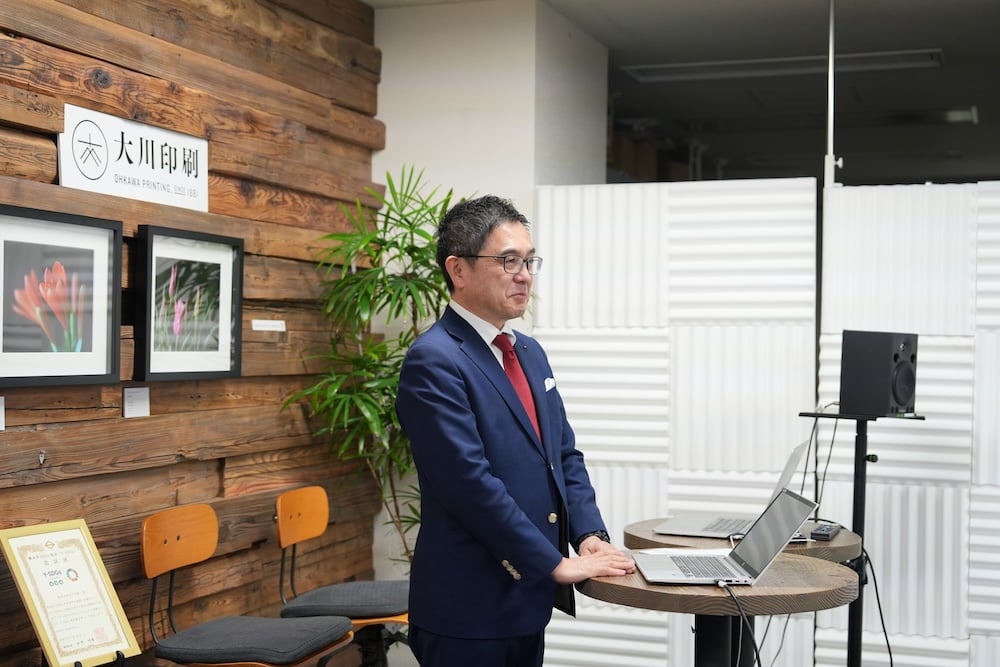
Tetsuro Ohkawa, CEO, Ohkawa Printing Co., Ltd.
Working toward the SDGs with citizens: Yokohama SDGs Design Center
The third destination was the Yokohama SDGs Design Center. The center was established in 2019 as a joint initiative between the City of Yokohama and private businesses. It functions as an intermediary organization to solve environmental, economic, and social issues in Yokohama.
The center provides consultation services on SDGs through coordinators and supports matching between local needs and resources to advance sustainability efforts.
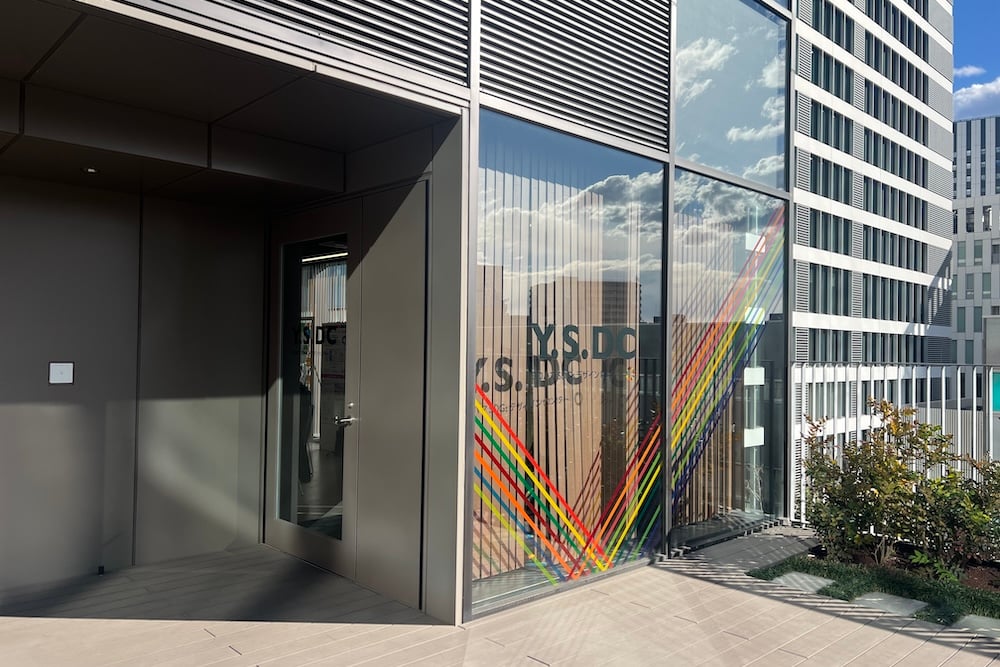
YOKOHAMA SDGs Design Center
First, Komiya from the City of Yokohama’s Zero Carbon and GREEN×EXPO Promotion Department, who is in charge of the center’s programs, introduced its initiatives.
In the second half of the visit, participants joined a workshop to make “wood straws” using thinned timber from Doshi Village, Yamanashi Prefecture.
The wood straws are made from thinned wood that absorbs CO₂ during growth. By promoting the use of Yokohama-produced wood straws, the city aims to contribute to achieving a decarbonized society, addressing marine plastic pollution, conserving forests, utilizing natural resources efficiently, empowering diverse people, and creating new business models. This initiative is part of “SDGs Future City Yokohama,” which seeks integrated solutions to environmental, economic, and social challenges.
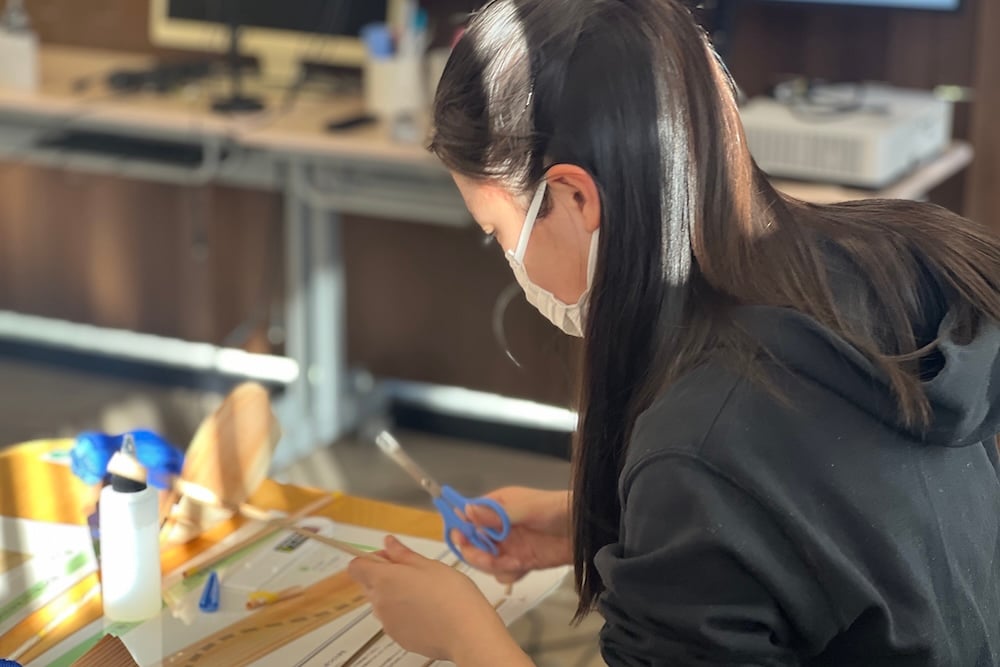
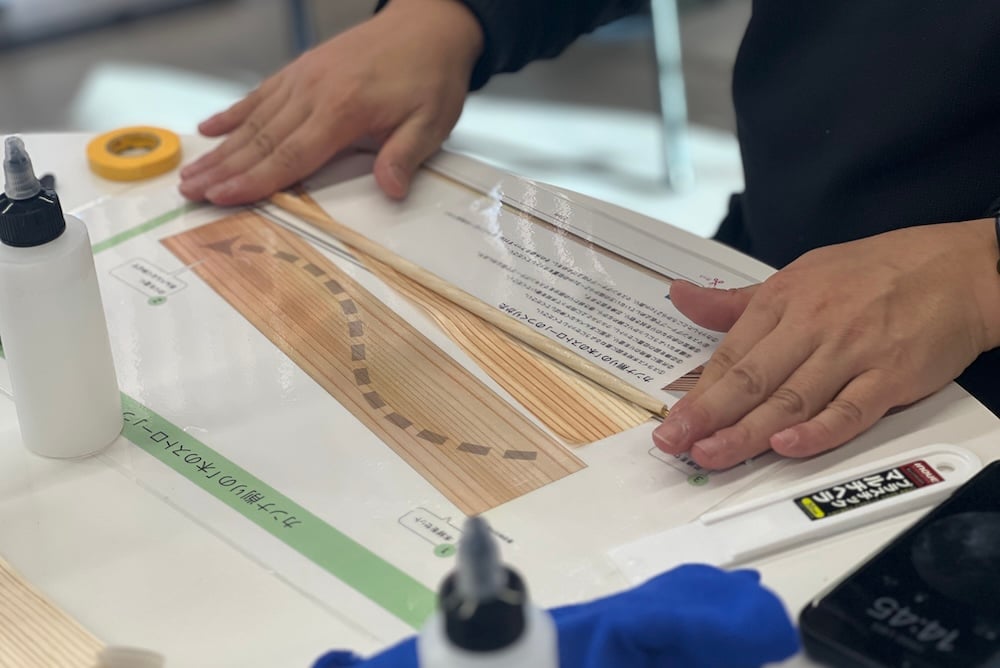
Participants carefully rolled the thinly shaved wood sheets into straws. Although some initially struggled with gluing, they soon became engrossed as they made multiple straws.
Some participants discussed ideas such as, “Besides wood, what other materials could be used?” and “How could we make it easier and more efficient?”
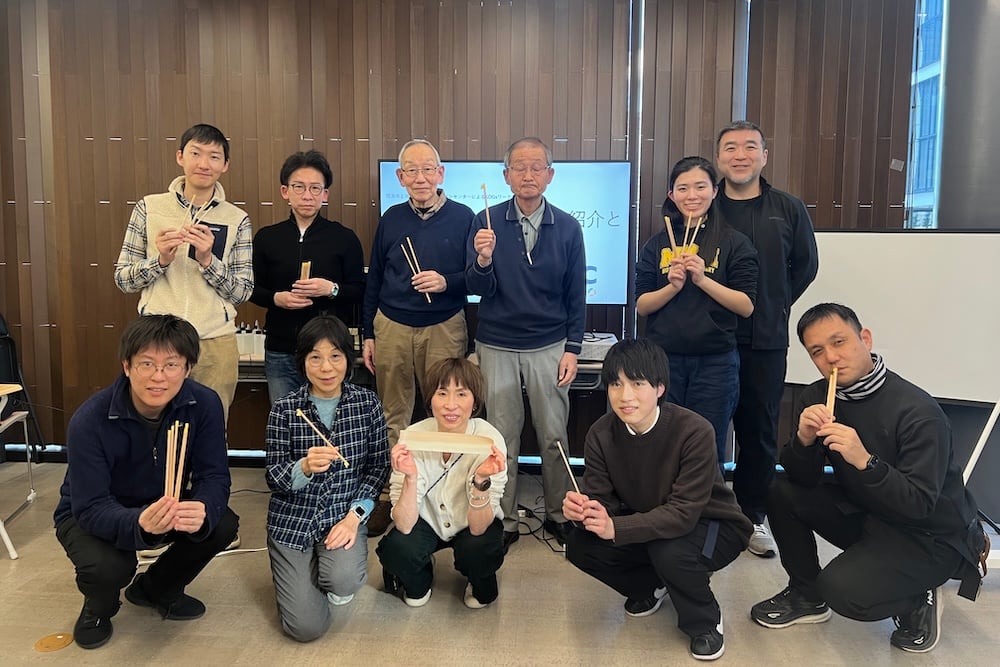
Participants with their completed wood straws
Exploring the forefront of circular economy in Yokohama: Circular Yokohama, Harch Inc.
The final destination was “Hoshiten qlay,” a commercial facility directly connected to Hoshikawa Station on the Sotetsu Line. With the theme “A Place to Play Your Way of Life,” Hoshiten qlay offers various initiatives combining circularity and creativity.
At this venue, Muroi and Maruyama, members of Circular Yokohama, gave a presentation on circular economy and the activities of Harch.
The circular economy is an economic system that views discarded products and raw materials, once wasted in the traditional linear economy of “take, make, waste,” as new resources, and aims to circulate them without producing waste.
Circular Yokohama engages in diverse activities to help integrate this concept into both social structures and everyday life in an enjoyable way.
Examples include our original mobile exhibition “YOKOHAMA CIRCULAR DESIGN MUSEUM,” “Circular Gacha” that exchanges bottle caps for local circular goods, and the community bookshelf “Hoshiten Circular Library.”
Through these projects, participants had the opportunity to see, touch, and learn about the forefront of local circular economy practices.
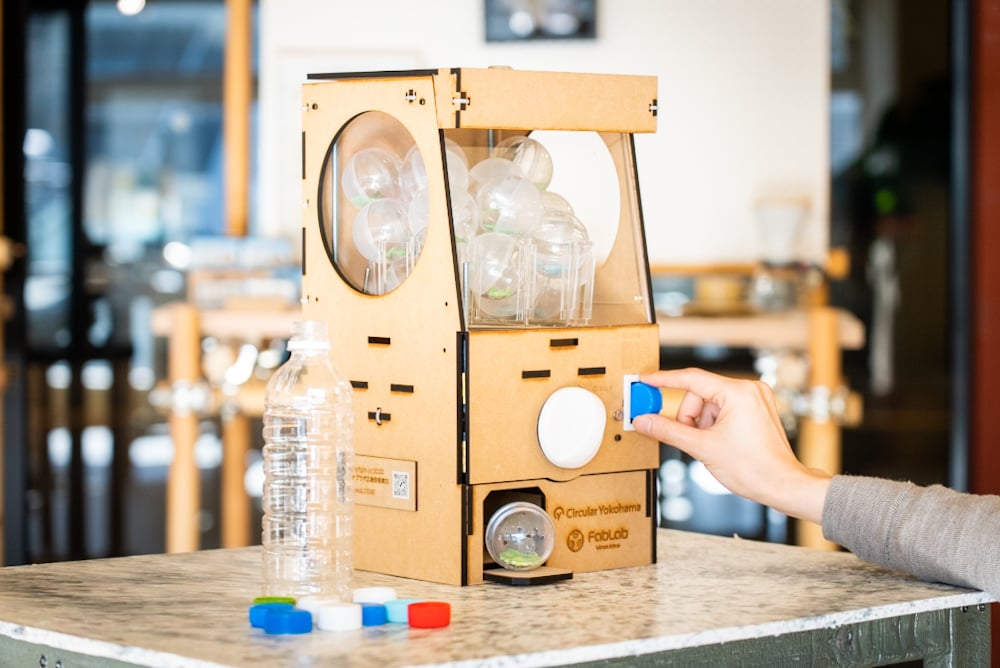
“Circular Gacha” that exchanges bottle caps for local goods
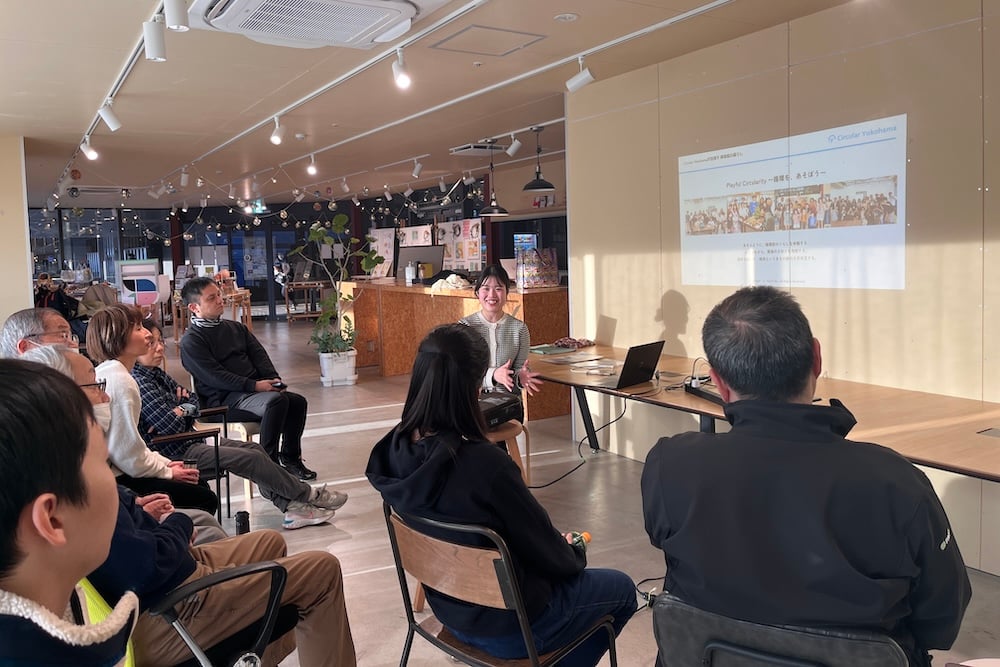
Presentation by Maruyama
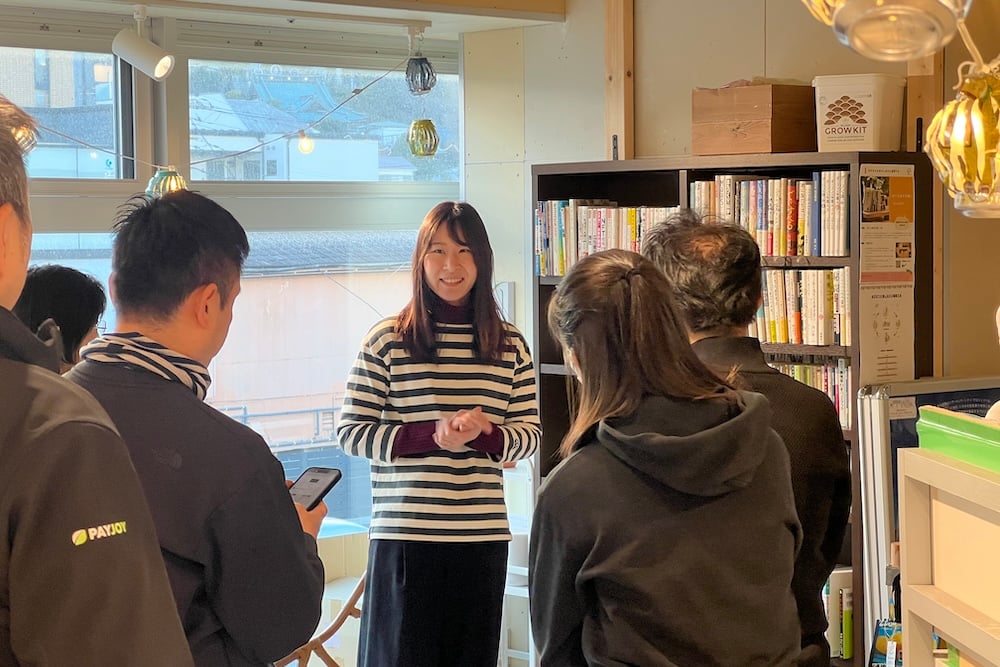
Exhibition visit led by Muroi
Closing remarks
Participants shared impressions such as, “I realized the potential and strengths of Yokohama,” and “I was amazed at how positively these companies are advancing sustainability. My vision of the future has completely changed, and I now see a brighter tomorrow.”
This tour allowed participants to experience firsthand the enthusiasm of local businesses and their potential for sustainability, showing that the circular economy is already becoming the foundation for building a better society.
Hearing directly from businesses operating for the benefit of the community and society is a rare opportunity. We hope that this tour will serve as a catalyst for participants to start new initiatives or collaborations.
We would like to thank all the companies we visited and all the participants who joined us. We will continue to provide learning programs in collaboration with local companies, organizations, and individuals.
* This program was organized and operated by Circular Yokohama (Harch).
* This article is republished from the official website of the Yokohama SDGs Design Center (in Japanese).
[Related Post]Basic and collaboration agreements finalized for Yokohama SDGs Design Center Project
[Related Post]A Seminar: “Why Companies Should Embrace Nature Positive Practices: Building Cities in Harmony with Nature” held successfully
[Related Post]Yokohama Wood Straw Project


![YOKOHAMA CIRCULAR FASHION GATHERING: Envisioning the future of textile circulation across industries [EVENT REPORT]](https://circular.yokohama/wp-content/uploads/2025/10/YOKOHAMA-CIRCULAR-FASHION-GATHERING-300x200.jpg)


![Light Up Your Language Skills: Crafting and Cultural Exchange Workshop! [EVENT REPORT]](https://circular.yokohama/wp-content/uploads/2024/07/englishcafe_craft9-300x200.jpg)

